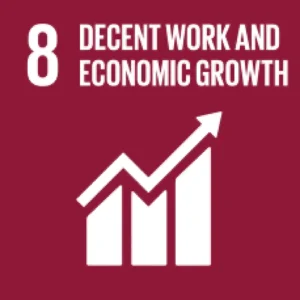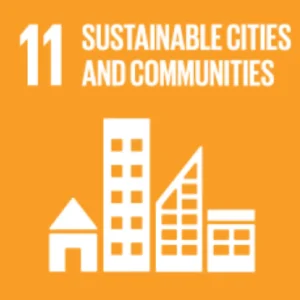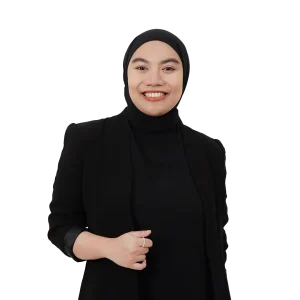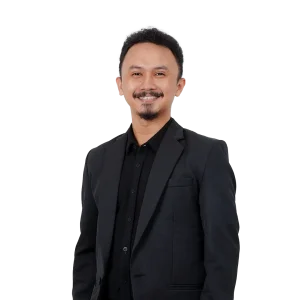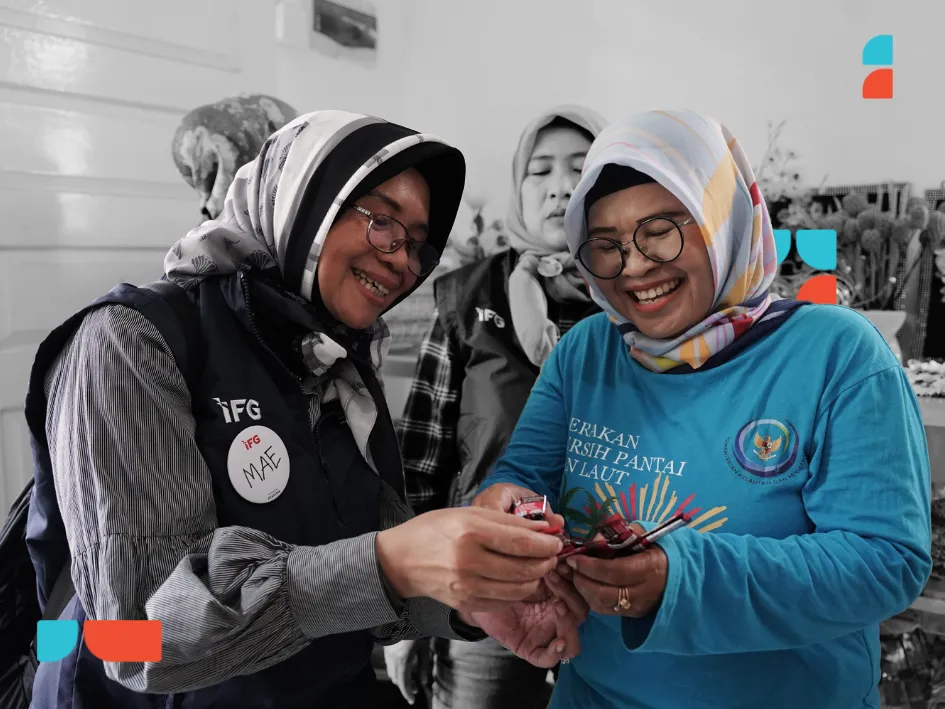
Live In Program at Osing Kemiren Village, Banyuwangi
How did Maxima develop Live In training for IFGs?
CHALLENGES
Indonesia Financial Group (IFG) faces challenges in enhancing women’s participation and leadership capacity at the managerial level. While the overall proportion of women managers in Indonesia has shown a positive increase from 22.32% in 2015 to 32.26% in 2022, IFG still needs to make further efforts to achieve a more balanced representation at the leadership level. Some of the barriers faced by women in reaching managerial positions include:
- Limited access to capacity building and leadership development spaces: IFG wants to expand opportunities for women to participate in capacity building spaces through leadership training and development programs. The existing gap has motivated IFG to maximize the ability of women in terms of experience and leadership skills.
- Limited opportunities to interact, understand, and take direct responsibility: Women at IFG have fewer opportunities to engage in important projects and take on significant leadership roles. This hinders the development of their skills and confidence as leaders.
To address these challenges, IFG needs to take steps to increase women’s access to capacity building and leadership development spaces. The company also needs to create more opportunities for women to interact, understand, and take direct responsibility in important projects. By doing so, IFG can create a more inclusive work culture and empower women to reach their full potential as leaders.
Also read: Here’s why IFG chose Live In!
SOLUTION
In enhancing proactive leadership capacity, Maxima Impact Consulting recommends the Live In program as a platform for IFG women leaders to gain direct experience in facing and resolving issues directly in Osing Kemiren Village, Banyuwangi. With participants including 11 women who will become Board of Directors (BODs) in the IFG group of companies, Live In is an effective solution to enhance the leadership capacity of IFG women. This program will help IFG women leaders develop the skills and knowledge they need to become more effective and impactful leaders. Live In is designed not only to strengthen professional competencies but also to foster direct closeness with the community, teach empathy values, and practical solutions to the challenges faced by the village community.
Through Live In, participants are prepared to become IFG BOD women leaders who hold more significant leadership roles, not only in the corporate context but also in bringing positive change to the community. The ultimate goal of this training is for IFG to be able to produce impactful women leaders while strengthening the support and collaboration network between SOEs and village communities. On the other hand, this training serves as IFG’s long-term plan to meet the SOE’s strategic plan target with women’s involvement of 25% of women leaders entering the managerial level.
Through Live In, Maxima provides leadership training that focuses on three things:
- Contextual Learning
A learning process that invites participants to be able to link the material or information learned with real-world situations. To implement this learning, it requires active involvement from each individual participant. - Community Based Learning
One of the advantages of Live In is to implement a learning strategy by involving the community both as subjects and objects of implementing learning practices. By learning directly with the community, participants will directly face various complex conflicts in society as one of the instruments for measuring sustainable leadership. - Impactful Value Synergies
By synergizing corporate values and non-technical competency needs, Live In facilitates leadership strengthening through community empowerment activities. The application of values or competencies is not only derived from material or workshop sessions, but also from treatment or stimuli that involve interaction with the community and the environment in Osing Kemiren Village, Banyuwangi.
Live In adopts an experiential learning-based methodology, combining theoretical sessions on leadership and community empowerment with direct implementation in the field. This includes brainstorming sessions, group discussions, and social projects that involve participants in developing and implementing solutions to identified problems in Osing Kemiren Village. In each session, participants are accompanied by facilitators to assist in the learning process. Through this process, participants not only broaden their understanding of socio-economic challenges but also apply critical thinking and problem-solving skills in a real-world context.
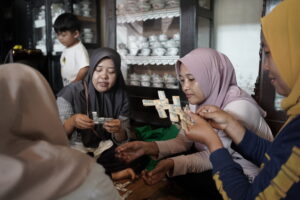
Figure 1. Live In Participant Social Project Activities with Various Stakeholders in Osing Kemiren Village, Banyuwangi
PROJECT RESULT
Through Live In, participants gain a variety of materials through implementation with the methods, objectives, and outputs to become sustainable leaders. With this strategy, the following are the results achieved:
Design Thinking for Social Impact
Addressing the issue of limited access to capacity building and leadership development spaces, one of the workshops conducted at the IFG Live In aims to build leadership capacity through the Design Thinking for Social Impact workshop.
The intensive training and activities in the Live In have significantly improved participants’ understanding of community empowerment dynamics, practical leadership skills, and the ability to identify and implement impactful innovative solutions. One indicator of the program’s success is the significant increase in the capacity of Live In participants in the “Design Thinking for Social Impact” workshop.
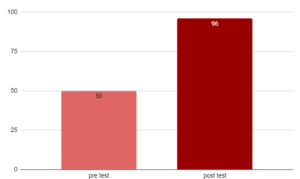
Figure 2. Diagram of Design Thinking Understanding Pre-Post Test Results
Based on the diagram, the average pre-test score for Design Thinking understanding was 50 on a scale of 100. In contrast, the post-test results showed a significant improvement, with an average score of 96. This indicates that the “Design Thinking for Social Impact” workshop successfully enhanced participants’ understanding of the subject matter by 92%, equivalent to a 46-point increase.
Social Project
The Social Project addressed the participants’ limited opportunities for direct interaction, understanding, and responsibility. Participants were given the responsibility to find, analyze, and implement the best alternative solutions in the implementation of the social project. The output of the social project is to see how the material from the “Design Thinking for Social Impact” workshop is implemented through the various decisions made by each individual participant. The social project targeted two community groups: traders at the Osing Kemiren Village Market and the Osing Kemiren Village-Owned Enterprise (Bumdes). The project directly benefited over 40 people. One of the beneficiaries shared his testimony as follows:
“Thank you to the IFG team for providing training on vacuum-packing techniques for traditional Banyuwangi food for the Osing Kampung Market, which has enabled us to sell our products online and through social media. This has been a valuable addition to our business, allowing us to reach a wider audience and increase our sales.”
| Chair of the Osing Kemiren Village Market Management Group
Project Name
Project Type
Beneficiary
Coverage Area
Period
Partner

SDG
